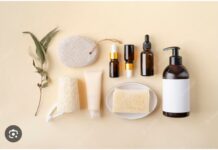Addiction relapse is not always inevitable. Being aware of the relapse triggers is the initial step that can work towards addiction recovery. Triggers are environmental, social, and emotional conditions that remind people to recover their past alcohol or drug use. An effective technique to prevent relapse is identifying the personal relapse triggers. Some of the common relapse triggers are quite obvious while some are not straightforward for alcohol addiction rehabilitation centers.
The most common relapse triggers
Hungry, Angry, Lonely, Tired: HALT
It describes the high-risk conditions for people who are in recovery. If you are aware of this trigger, you should be vigilant to prevent yourself to enter this state. When recovery remains your priority, ensure you avoid becoming too angry, hungry, tired, or lonely. It means planning meals, attending support groups, and sticking to a tight sleep schedule.
Stress
Stress can be a relapse trigger due to its wide range of effects on body and mind. Losing a loved one or a job, increased health problems may create stress. The main factor is being proactive regarding stress prevention and becoming honest and mindful that causes stress.
Emotions
Perceived negative emotions make people use alcohol or drugs and can lead a person to use the drug of choice. It is impossible to avoid feeling angry, sad, lonely, or guilty all the time. Experiencing these emotions is a vital aspect of life and recovery. Learning how to deal with your emotions when they arise without using alcohol and drugs is essential in recovery.
Over-confidence
Self-confidence is essential but becoming over-confident can relapse risk. After recovery, you might feel you do not have to follow the relapse prevention plan. This is a disaster. Remain humble and remind yourself that addiction is chronic regardless of feeling very strong.
Social isolation
If you are reluctant to reach out to people or get support through another recovery group then it might result in loneliness and social isolation. When you become more isolated socially, it becomes easier to use drugs. It is important to have a counselor who can avoid such situations in 12 Step East Coast.
Physical or mental illness
Anxiety, depression, and other mental illnesses might trigger alcohol or drug abuse. Pain and physical illness can put at the risk of relapse because you are stressed. Drugs for physical and mental illness are mind-altering and can trigger addiction relapse. Get treatment for mental illness and monitor your feeling and thinking to notice when you slip into the old patterns.
Getting a new job or promotion
Getting a new job or promotion may lead to celebrate it with a drug or drink. Though a promotion or any positive event can give you confidence or excitement, it might have added responsibility, stress, and pressure. It is vital to prepare a plan on how to celebrate without alcohol or drugs.
The risk of addiction relapse is always there but if you are caught, it does not indicate you are a failure. Recovery is possible, the sooner you act, the better is the relapse.
Write and Win: Participate in Creative writing Contest & International Essay Contest and win fabulous prizes.











